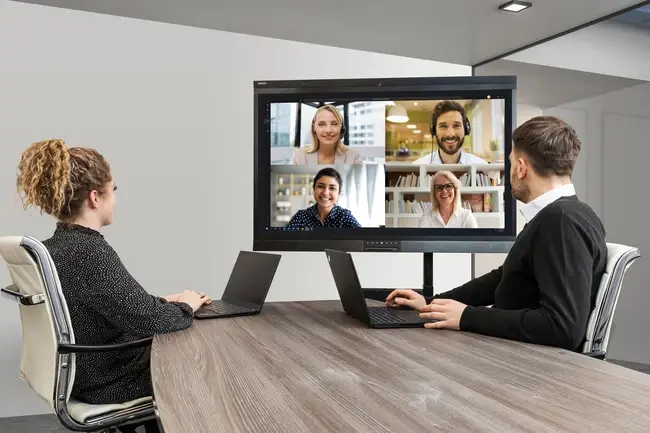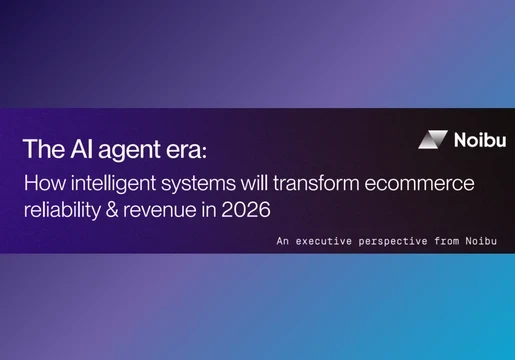By Dana Corey, Senior Vice President and General Manager at Avocor
For business, the need to redefine the workplace and put hybrid working policies into practice has been hugely accelerated by on-going global events such as Covid and the cost-of-living crisis. Technology is pivotal for making this transition, but with a huge tool kit to choose from how do decision-makers know where to invest?
The sheer proliferation of platforms, abilities, and features can be a minefield for identifying the best, more secure and user-friendly hybrid working solutions for your business.
The good news is that tech companies are talking to, and working together more than ever, creating partnerships to deliver solutions for a more collaborative future.
So, we know the tools are out there. Choosing the right ecosystem will not only save time and money in the future, but also enable your team to hit the ground running at peak productivity sooner. Let’s look at the most important features to look for.

True hybrid collaboration
While the option to be fully remote will still exist for many companies, in-person collaboration continues to be the benefit that employees enjoy most about the office. According to a survey by Microsoft on hybrid work, more than 65% of those surveyed crave more in-person time with their teams to collaborate.
At the same time, employees have also acknowledged the benefits of physical workplaces and offices that are harder to replicate virtually – one of them being the interpersonal connections and relationships they are able to forge in person.
Read more about enterprise collaboration on our dedicated Unified Communications page
With these considerations in mind, leaders developing a digital transformation strategy should focus on space design and technology that supports flexible collaboration, leaning on physical office space for in-person collaboration.
Employees should be able to move from each style of work fluidly, whether they’re in a conference room in the office in the morning and at home working after the school run in the afternoon. Collaboration and UC technology can enable this seamless transition by replicating the in-person experience through video display technology, and vice-versa.
Wherever they are based, employees need to benefit from the meeting equity and interactivity UC tools can deliver, with the same functionalities, regardless of location. They should be able to enter any workspace, physical or virtual, and immediately be able to collaborate with fellow team members without wasting time on set-up.
Another great feature to look for is real-time annotation. The ability to show cloud-based real-time annotations in a meeting with (and from) everyone on a call, and then to save and share the new ideas and edits, gives all participants an equal opportunity to provide input. Features like this help to foster a sense of connectivity by eliminating siloed conversations and opening the possibilities of how teams must work today.
Scalable Solutions to Support a wide range of services and platforms
Workspace apps such as Microsoft Teams, Zoom, Ring Central, and Google Meet have become a standard part of the office IT set up. Ensuring compatibility and compliance with all of the tools that people are using is essential for business leaders to keep both productivity and employee satisfaction high.
Some of the common challenges with rolling these changes out include an assurance that the installed technology will work seamlessly with an enterprises’ existing OS and applications, that it will be totally secure and that it will be easy-to-use for their entire employee base, including those who are not stationed within the main office.
There are also logistical challenges around system design and choosing products that cut down on the number of devices you have in a meeting room or huddle space. Decision-makers should therefore look for all-in-one displays that feature audio/video capabilities, embedded cameras, and a full suite of native support for all the tools and platforms that employees use across the enterprise.
Data is key
Analytics and data have always been an important driver in decision-making for the enterprise, but with the return-to-work post-COVID, this information is even more critical to ensure operational efficiency, as well as employee comfort and confidence.
Also, commercial real estate and office space are at a premium, from the basic cost-per-square-foot to the amount it costs to manage those spaces. Workspace intelligence analytic solutions built into workplace hardware, such as meeting room displays, allow enterprise decision-makers to take immediate action to re-evaluate meeting rooms, UC hardware and software ROI, as well as guide future planning.
The way forward
Planning a digital transformation strategy that encompasses the multi-faceted needs of the new workplace will position leaders, and their organisations, to have the best chance of success, business continuity and employee satisfaction.
In the initial 12 months of the pandemic, organisations were focused on digital enablement for workers, making sure they had tools to be productive at home and contribute to continuing to drive business with the provision of laptops, webcams etc. We’re now at a place where we need to supercharge these tools and provide all the capabilities of office-based tools, for the home-office home too.
Consistency is key to building company culture and supporting productivity. The enterprise needs a slick and user-friendly hybrid ecosystem that can be rolled out company wide. It’s my view that this approach will be widely adopted by businesses, providing a standardised ecosystem that gives every employee the same view, functionality, experience, and style in meetings, whether in the office, the boardroom or in the home-office. Hybrid harmony is on the horizon!
To learn more about Avocor, visit www.avocor.com







Comments ( 0 )